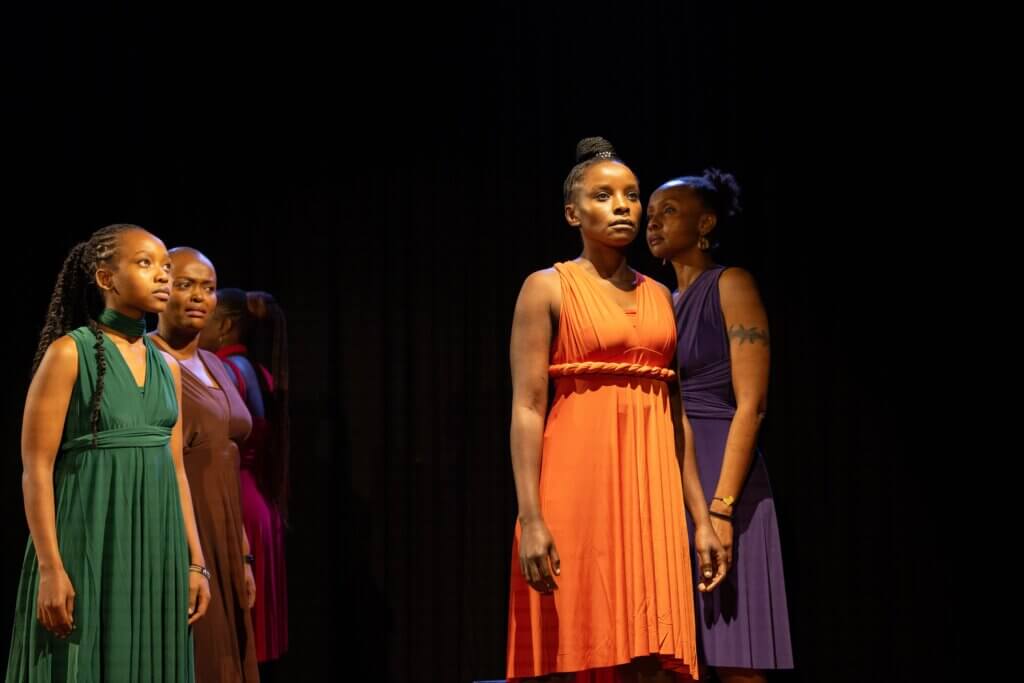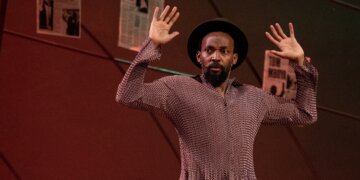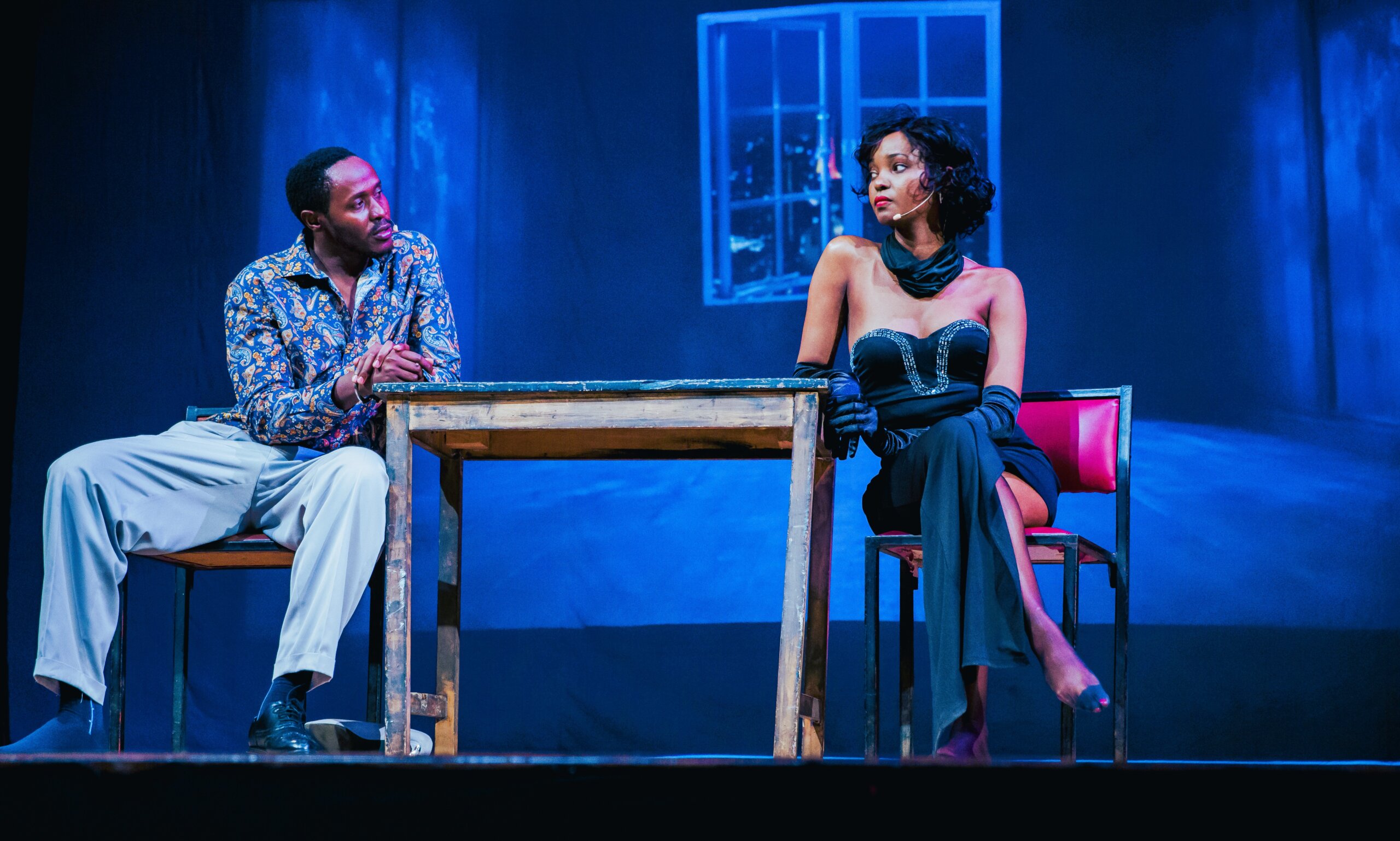Directed by Cheryl J. Williams, For Colored Girls Who Have Considered Suicide/When The Rainbow is Enuf was performed at Signature Auditorium in Westlands, Nairobi, as part of the “Silence No More” campaign that aims to address GBV (gender-based violence) in Kenya. The play is set to tour the country, with its next stop in Kisumu in December, followed by Mombasa. It is a production of Ntozake Shange’s 1976 choreopoem of the same name, only the second project written by an African American woman to open on Broadway, and nearly fifty years later, here it is, being staged in Nairobi. The production is a team effort between Denmark and Kenya, bringing together actresses from both countries for a cohesive project of multicultural collaboration.
The women of colour and the colours in question are Brown (Mbeki Mwalimu), Yellow (Melissa Kiplagat), Orange (Wanjiku-Victoria Seest), Purple (Nini Wacera), Red (Marianne Nungo), Green (Tana Gachoka), and Blue (Rebecca Langley). The overarching colour that ties them all together, of course, is black. For Colored Girls speaks on women’s personal stories of oppression and suffering in a sexist and racist society, the operative description being show, as it is not a play in the traditional sense. The production is wildly creative and free-form in nature. It dispenses with the usual pageantry of theatre and drama ‘storylines’ and aims to tell a theatrical story(ies) through histrionic chit-chat, full of sass and wit, which had me in thrill, sometimes intrigue, and sometimes in shock. Despite the heavy themes and subject matter, it was an absolutely good time.
Colours make the biggest impression from the very first glance at the stage. The lighting is very bright, set to accentuate these seven women in respective sun dresses, all different colours, which make up a rainbow, save for the brown in the mix. Standing up on stage together, all the women emit a beautiful ray of vibrance that makes you want to listen to their stories. So we listened.
As stated earlier, For Colored Girls is full of sass and feminine pulchritude, weaponised brutally and wonderfully against all the evils the patriarchy has inflicted against women. Pulling no punches at all, as a mere man in the audience (gleefully lucky not to be caught in the front row), I felt like a fly on the wall at the other party’s treehouse. It was very refreshing to see women being allowed to be as ‘vulgar’ as men ordinarily are even without being termed as such. When one actor says, “I was just sitting there, with my legs spread open to let my coochie get some sunlight,” or another, describing the insecurity of some men, “Micro-dick,” it feels like when the person in the room who’s been quiet the entire time deflates a tension you never knew was there by speaking up. The whole show, short as it is at about ninety minutes, feels like one big satisfying deflation of pretence. We’re all thinking it, and here is a production that actually says it outright.

The production, however, focuses mainly on GBV (gender-based violence) and very little on suicide. I was led to believe the contrary based on the title, and I just wish the play had tackled more on that too. It made me wonder: why this particular play? Shange’s original work is made up of twenty different poems woven together into one cohesive message of sisterhood. It’s also the foundation upon which Tyler Perry’s 2010 film of the same name, starring the likes of Janet Jackson, Thandie Newton, Loretta Devine, Anika Noni Rose, is based. It is a critically acclaimed work, though I wonder whether some fresh new text highlighting present-day-geographically-relevant issues along the same lines would have made their social cases better. Like say FGM? But don’t get me wrong, For Colored Girls is a powerful experience that hits all its marks wonderfully, but in the grand scheme of things, perhaps little tweaks here and there in African iterations to capture the full scale of women’s experiences here.
The campaign “Silenced No More” is described by this production’s artistic director, Michael Omoke, as being more than a movement. They aim to use theatre to champion women’s rights and fight against violence towards women and girls. This is an extremely dextrous theatre company, and they may have pre-empted my tiny critique because a Danish-Kenyan play titled Silenced, which seeks to raise awareness on FGM, is currently in development. It is being funded by the Danish Agency for Culture and Palaces and will deepen Denmark-Kenya ties moving forward. When the time comes, I know Silenced will do just as much justice to the disgusting practice of FGM as For Colored Girls did, and continues to do, for GBV.
Enjoyed this article?
To receive the latest updates from Sinema Focus directly to your inbox, subscribe now.











